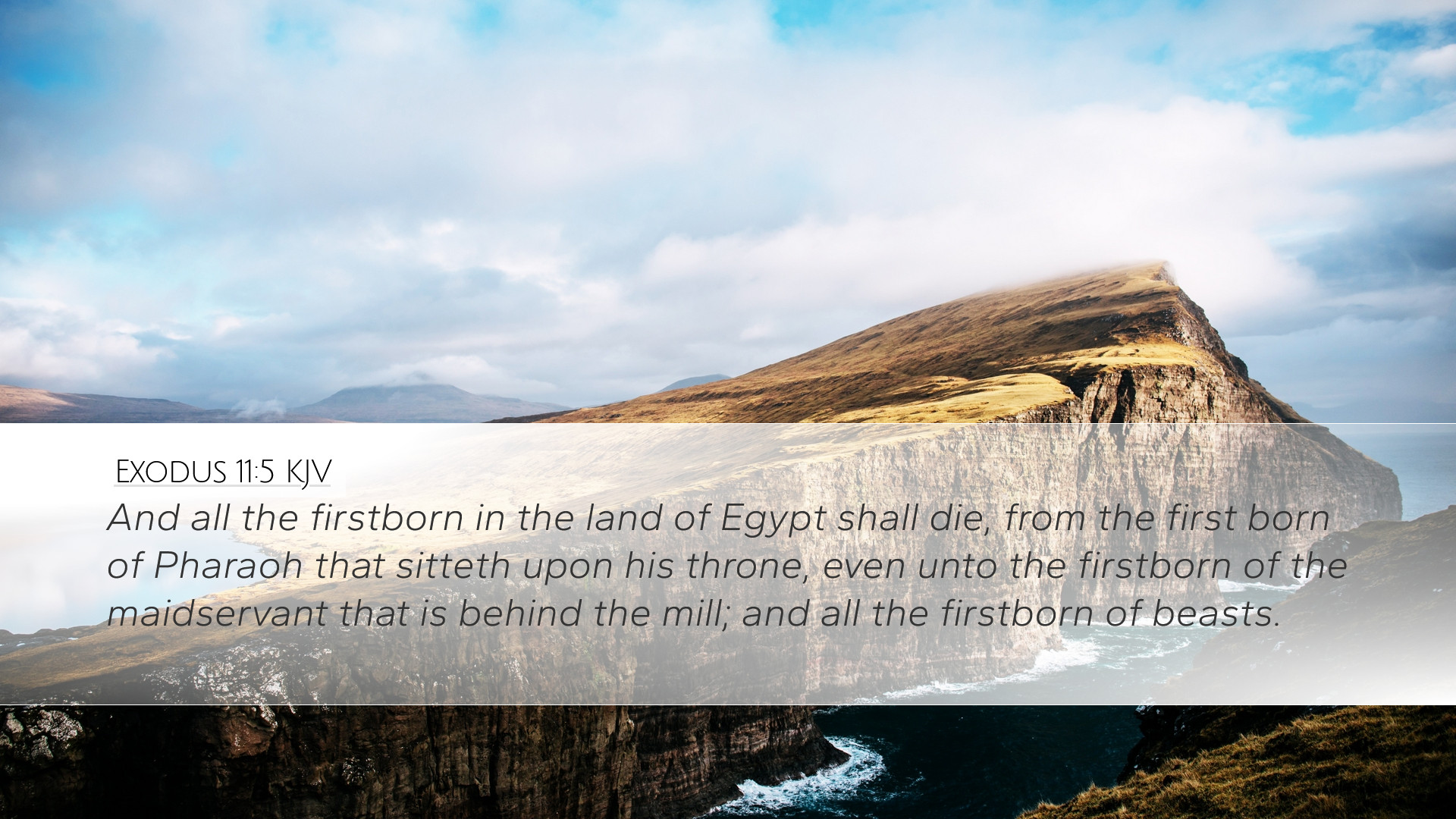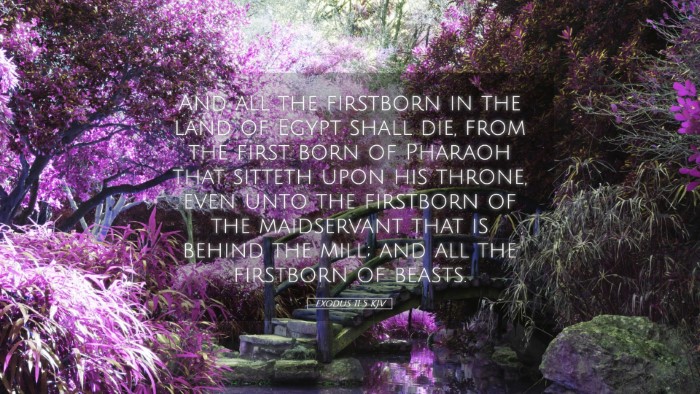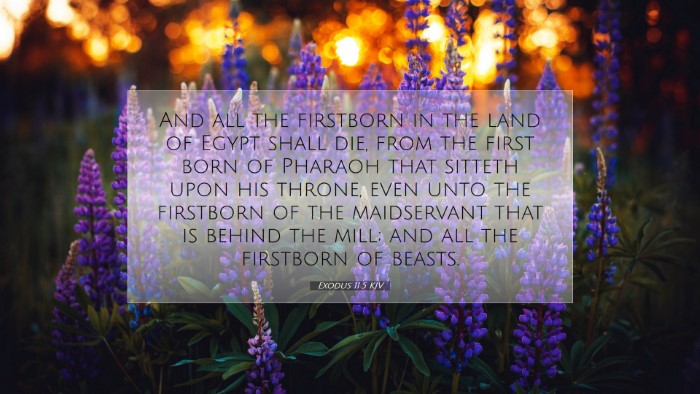Exodus 11:5 - Summary and Commentary
Exodus 11:5 states, "And all the firstborn in the land of Egypt shall die, from the firstborn of Pharaoh who sits on his throne, even to the firstborn of the female servant who is behind the handmill, and all the firstborn of the animals." This verse serves as a critical moment in the narrative of the Exodus, encapsulating God's judgment upon Egypt and His profound sovereignty over life and death.
Contextual Overview
The Exodus narrative unfolds as a story of liberation, where God systematically dismantles the oppressive regime of Pharaoh to free the Israelites from slavery. This verse, part of the final plague, illustrates the weight of Pharaoh's refusal to obey God’s command and the implications of Egypt's sin against Him.
Theological Significance
-
Divine Judgment:
The death of the firstborn is a profound demonstration of God’s judgment against Egypt’s idolatry and oppression. This act serves as a reminder of the seriousness of sin and the consequences it incurs (Matthew Henry).
-
God's Sovereignty:
The specificity of the judgment—from the highest (Pharaoh) to the lowest (the servant)—emphasizes God’s absolute authority and control over all creation (Albert Barnes). No position of power can insulate one from divine justice.
-
Symbol of Redemption:
The firstborn plays a crucial role in biblical theology. This event foreshadows the ultimate sacrifice of Christ, the firstborn of all creation, who would later redeem humanity from the bondage of sin (Adam Clarke).
Exegetical Insights
The Hebrew term for "firstborn" (בְּכוֹר, bekhor) carries significant weight, denoting not only birth order but also unique privileges and responsibilities. This context enhances the gravity of the loss described in Exodus 11:5. The firstborn in Egyptian households represented a pivotal link to lineage and inheritance, thus making the death decree particularly devastating (Matthew Henry).
Reflective Points for Pastors and Theologians
-
Confronting Idolatry:
As pastors and theologians, it is essential to reflect on how the judgments upon Egypt parallel modern idolatry. The plagues serve as warnings against the worship of powers that oppose God and the inevitable judgment that accompanies such rebellion (Albert Barnes).
-
Understanding Suffering:
The theme of suffering under divine judgment prompts deeper discussions around the nature of God. Recognizing that God's judgment is aimed at the oppressor can provide comfort to those enduring suffering for righteousness's sake.
-
Sacred Identity:
For students and scholars, exploring the theme of the "firstborn" leads to a richer understanding of God's redemptive plan through Scripture and its fulfillment in Jesus Christ, reinforcing the sacredness of the identity given to believers (Adam Clarke).
Conclusion
In Exodus 11:5, we see a striking account of divine judgment that reverberates throughout Scripture. It challenges adherents to consider the weight of rebellion against God and the profound grace offered through redemption. The verse serves as a reminder that God does not overlook sin, but He provides a path through Christ for all to escape the judgment foretold in Egypt.


